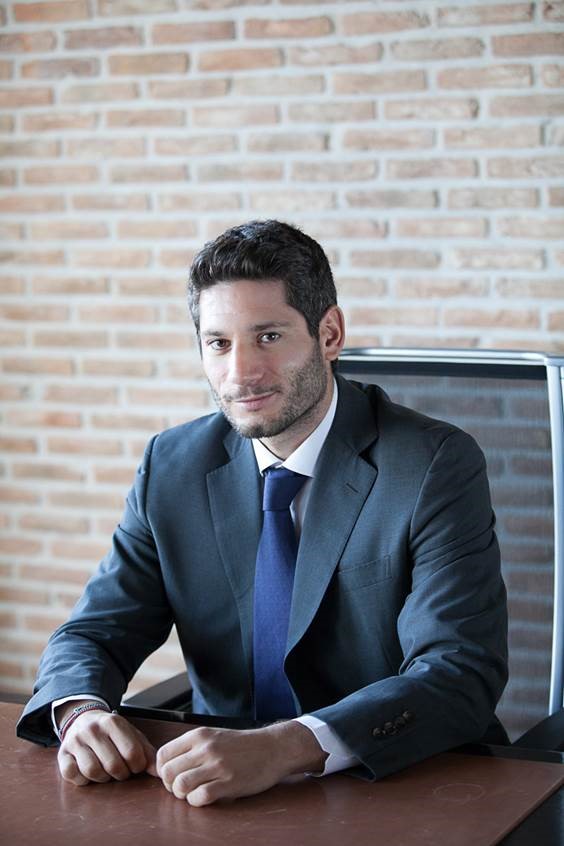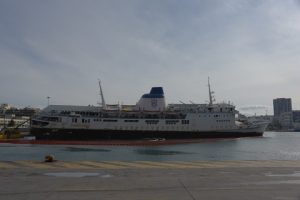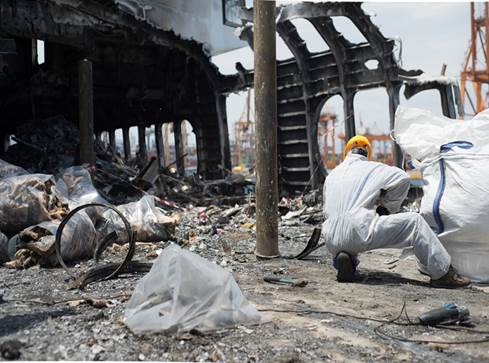Following recent environmental issues, developments, events as well as incidents, Allaboutshipping’s Anny Zade met with with Antipollution’s CEO Byron Vassiliades and asked him certain questions; herebelow viewers can read the entire interview:
1.How have states and port authorities responded in the last few years to greater needs for recycling and waste management under Marpol? Where does Greece stand compared to other nations in observing international environmental standards?
During recent years there has been a lot of development in the “green shipping” sector, since vessels have to harmonise with new regulations related to reduction of emissions, treatment of ballast water etc, whilst ports are taking serious actions in providing green services. Piraeus is a Green Port which is part to the EcoPorts Network. So, Greece in terms of port reception facilities stands equal among Europe’s biggest ports. Antipollution serves Piraeus Port and other ports in Greece with commitment and respect, investing in infrastructure (for the sound environmental management of Marpol waste, our fleet collects every day round the year, on a 24/7 basis) even during these harsh financial times, offering integrated environmental services to our customers calling at Greek ports. By our operations we contribute significantly to the enhancement of a better port environment as well as to meeting the highest international environmental, social and business standards.
2.Shipping companies are going through a tough financial time – is there a danger that they or their crews will cut corners and cause serious marine waste and pollution problems?
Despite the tough financial times I believe that ship owners will not cut corners; the mentality has changed. Ship owners have taken so many initiatives to promote sustainability of the sea environment and support subsequent actions. There so many laws and monitoring mechanisms that none of the businesses would take a risk to save a few thousand dollars when such could lead to a fine of millions. The sea is home for shipping, so to be sustainable we have to keep the house clean and tidy;
3.Equally, cities have been under pressure to cut spending on environmental cleanliness. What is the role of your company in helping find solutions to this dilemma?
Ports are part of a wider social system which functions similarly when it comes to production of waste. Antipollution has invested in the establishment of facilities that provide solutions for sound environmental waste management and therefore are able to absorb part of the problem. For example in our fully licensed facilities, equipped with cutting edge technology, we produce RDF (Refuse Derived Fuel : alternative fuel for cement plants), recover recyclable materials from the residues which otherwise would end up as landfill as per Directive 2008/99/EC, segregate, repack and temporarily store and export hazardous waste that cannot be treated in our country and must be incinerated abroad. Also our R&D department is fully dedicated to developing new techniques and investing in new technologies that would eliminate volumes of waste and eventually reach our goal, which is Antipollution target “ZERO WASTE”
4.Antipollution signed a cooperation agreement with Veolia ES Field Services UK for global emergency response and distressed cargo management services, in March 2016. What was the motivation for this cooperation?
With Veolia ES Field Services UK we have a long lasting friendship and cooperation which was sealed when my company was awarded the project for the clean-up and environmental management of the passenger vessel Highspeed 5, when it suffered extensive damage caused by fire during maintenance. So the idea was born as Veolia’s incinerator in Poland received all the hazardous waste we collected from the vessel. Now we are in the process of promoting our emergency response environmental services to the whole industry , globally, since in this way we can combine Veolia’s facilities worldwide and our deep knowledge and experience in serving the shipping sector.
5.Do you have plans to offer other of your company’s services outside Greece?
We think locally and act globally. We may be able to disclose more in the near future. I hope soon to have the pleasure and honour of talking with you again and to make the first announcement through All About Shipping!
6.How is the maritime industry shaping up to meet the new Ballast Water Management provisions?
Antipollution has invested in this sector too; as said we aim to provide complete environmental related services and systems to our customers. From my point of view the recent development with the extension for the shipping companies to comply with the regulation gives some space for both parties (ship owners and manufacturers) to get better prepared and respond to the requirements of the market.
7.The International Salvage Union has urged greater use of the Lloyd’s Open Form, arguing that this provides salvors with a fairer financial reward than fixed-tariff contracts. What are your views on this?
I think that LOFs provided always a secure base to the salvor and a guarantee that rendered services will be paid. Salvors operate under extremely stressful situations that involve saving of property at sea and minimising and preventing damages to the environment, each casualty is a single case with unforeseen factors and risks. I am actually waiting to see what the response will be to the recent BIMCO RESPONSECON (International Spill Response Contract) which is closely relevant to my company’s interests. I think that there is a general intention to control and sustain the market but I believe that such cannot apply to all circumstances.
8.In general terms, are salvors and response companies adequately rewarded for their services in preventing pollution and other hazards?
Our company has recently been involved in such operations; we have been involved in casualties that took place in the last three years in Greece, so it wouldn’t be wise to express my opinion on the subject. The only comment I allow myself to make is that the competition has significantly increased and cases are fewer.
9.What international reforms would you like to see in the fields of your specialities?
I would like to see more segregation of waste at source so that we can achieve zero waste.
10.Do you believe that the insurance industry offers facilities that provide adequate support to companies such as yours?
I am one of the strongest supporters of the insurance industry! I was raised with full insurance awareness and whatever service I am requested to provide I always consult my broker. I know that amounts paid for insurance covers are huge but the risk involved in our business is such that repercussions of mismanagement or and misfortune during operations could lead to serious problems. Concluding I could say yes, the industry provides adequate support.
Thank you very much Mr. Vassiliades and wish you and all at Antipollution the very best!
_
Uploaded 13:16 BST 17 July 2017
Updated 17:23 BST 19 July 2017









